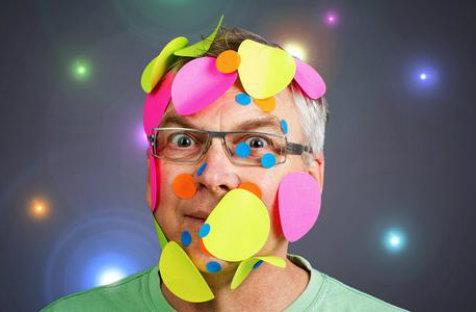The open access model ensures that the Fringe spirit is truly represented.
When the first Edinburgh International Festival was held in 1947, eight small theatre companies turned up unannounced, taking advantage of the gathered audiences to stage their own alternative productions.
The following year these festival outsiders returned in greater number, prompting Edinburgh Evening News journalist Robert Kemp to comment: ‘Round the fringe of official Festival drama, there seems to be more private enterprise than before … I am afraid some of us are not going to be at home during the evenings!’. The world’s first Fringe Festival was born.
By 1960, the Fringe model had spread to Adelaide. Thereafter, Fringe Festivals sprouted up across the world: the Brighton Festival Fringe was founded in 1967; Melbourne Fringe Network established itself in 1982, the same year North America’s first fringe festival was started in Edmonton, Alberta; while Prague Fringe Festival, a relative latecomer, was not established until 2001.
Today, the Edinburgh Festival Fringe is the world’s largest arts festival; the 2012 program featured some 2,695 shows from 47 countries. Despite its size, it remains open access – anyone who can afford the cost of registration can present their work as part of the Fringe.
Uninvited, uncurated and untamed – these are the hallmarks of a Fringe festival. Or at least, they were.
When Sydney Fringe re-established itself in 2010, it was initially a curated festival, an unsettling trend that has slowly spread around the world to the likes of the Dublin Fringe Festival and New York International Fringe Festival.
Thankfully, in 2012, Sydney Fringe festival director Richard Hull dumped the programmed model in favour of an open access policy, ensuring that – like its sister festivals in Adelaide, Brisbane, Perth, Melbourne and even Castlemaine, in regional Victoria – Sydney Fringe is true to the traditional spirit of Fringe.
Put simply, a curated festival is no longer Fringe. The act of curation – exercising taste and choice to include specific acts and artists – is not only contrary to the spirit and history of the Fringe; it means that festivals which operate on such a model are actively excluding artists who already create work on the cultural margin.
Fringe art sometimes exists in direct opposition to officially sanctioned tastes, while the sense of risk inherent in a true Fringe Festival – where the avant-garde exists alongside the amateur – means that one can never be certain of the quality of the work one is about to see. But that’s entirely the point. Fringe is a risk. Fringe is an adventure.
Theatregoers at that first Edinburgh Fringe back in 1947 knew that the Edinburgh International Festival had been carefully programmed to ‘provide a platform for the flowering of the human spirit’, at a time when the memories of World War II were painfully fresh and raw. By gatecrashing the official festival, the founders of the Fringe showed that artistry cannot be tamed; instead of a carefully curated garden in which the human spirit could flower under the watchful eye of the establishment’s sanctioned cultural gatekeepers, they seeded a wilderness, untamed and more beautiful than any carefully nurtured flowerbed.
Today, in an age where the natural world is rapidly being destroyed by industrialisation and over-development, we know the true value of the wilderness – and just like the environment, the wilderness which is the true spirit of Fringe needs to be nurtured and preserved.
Brisbane Fringe Festival: 1-14 September 2013
Sydney Fringe: 6-9 September 2013
Melbourne Fringe Festival: 18 September – 6 October 2013
(Pictured: <em>19 Points of Connection</em>, a live art event at the 2013 Melbourne Fringe.)





